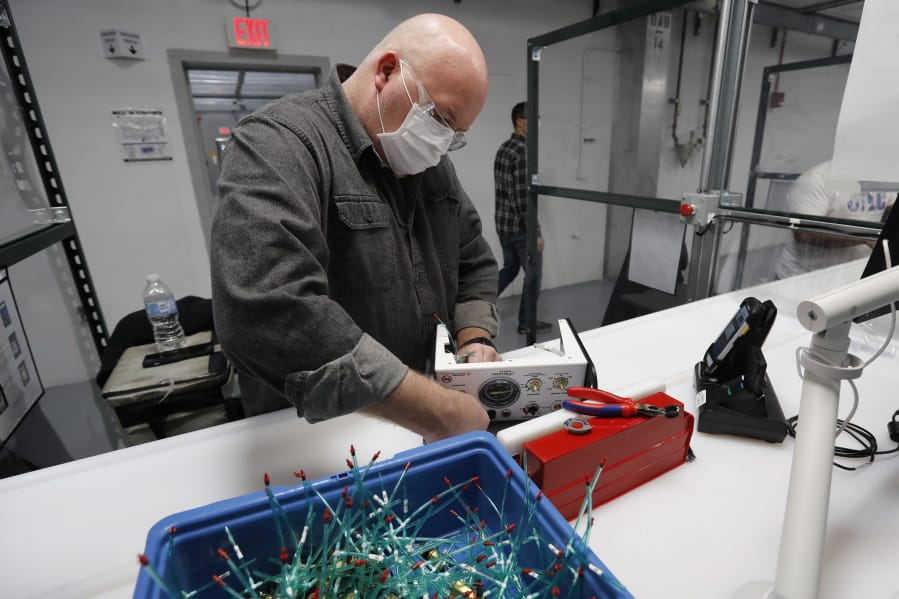DETROIT — Defying a wave of layoffs that has sent the U.S. job market into its worst catastrophe on record, at least one major industry is making a comeback: Tens of thousands of autoworkers are returning to factories that have been shuttered since mid-March due to fears of spreading the coronavirus.
Until now, it was mostly hair salons, restaurants, tattoo parlors and other small businesses reopening in some parts of the country. The auto industry is among the first major sectors of the economy to restart its engine.
About 133,000 U.S. workers — just over half of the industry’s workforce before the pandemic — are expected to pour back into auto plants that will open in the coming week, according to estimates by The Associated Press. In addition, parts-making companies began cranking this week to get components flowing, adding thousands more workers.
Looming in the background is an economy decimated by the pandemic. Nearly 3 million laid-off U.S. workers applied for unemployment benefits last week, raising the total seeking aid in the past two months to about 36 million. Although some states have begun to let selected businesses reopen, workers are still reporting difficulty getting unemployment benefits. Freelance, gig and self-employed workers are struggling.
Even the auto sector won’t see a full return to normal yet, and if people don’t start buying vehicles again, workers could be sent home. Yet automakers say there’s enough pent-up demand, especially for pickup trucks, to get factories humming again.
That could help states slow the drain on their unemployment benefit funds. In Michigan, where over one-third of the labor force sought benefits, the fund fell from $4.6 billion before the pandemic to $4.1 billion on April 30, said Jeff Donofrio, director of the state Department of Labor and Economic Opportunity. Some returning auto employees could work part-time and get still some unemployment benefits, but federal programs could cover part of their payments, he said.
At Ford, where about 47,000 U.S. factory workers will return by next week, there’s optimism that consumer demand will accompany them. Chief Operating Officer Jim Farley said the company has seen sales start to recover.
Ford predicts stronger sales in the future in Europe, China and the U.S. based on data collected from new models equipped with internet modems that show the number of times an engine is turned on and off. The company found a correlation between the number of trips people take and auto sales, with trips increasing as restrictions eased.
“We started to see in early April a change where people started to take more trips,” Farley said Thursday. “The (sales) decline stopped and our retail sales improved a lot.”
Auto sales in China, where the virus peaked before the U.S., could be a harbinger of things to come. China sales fell just 2.6 percent in April from a year earlier, compared with a 48 percent free-fall in March. Production at many plants is nearly back to normal after being shut down in January and February. Volkswagen, Honda, Mercedes and Ford reported no virus cases among employees since reopening. Fiat Chrysler had two, but said the workers never entered factories.
Things are worse in Europe, where sales plummeted 55 percent in March and some factories are running at only 40 percent of capacity. The pandemic has affected over 1.1 million European auto industry workers, almost half the sector’s manufacturing jobs. Most are getting paid through government support. A survey of auto parts suppliers shows that a third of executives believe it will take at least two years for the industry to recover.



